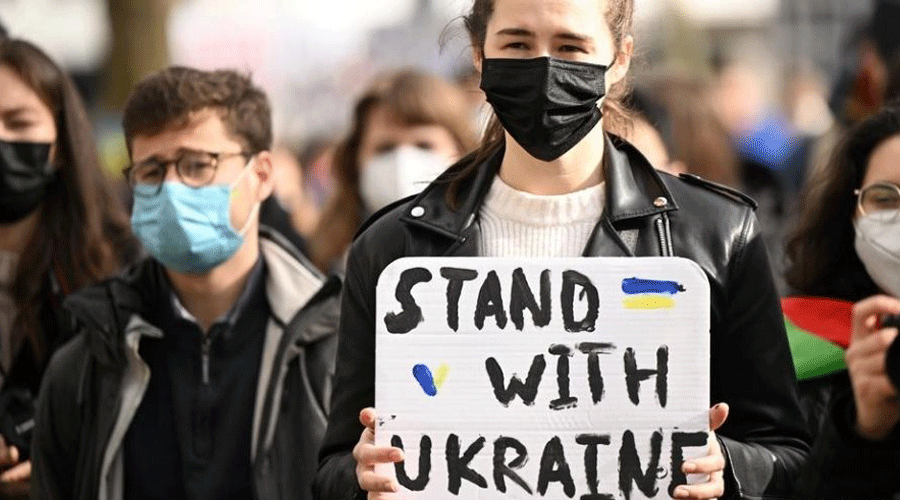Five airstrikes near a railway station in Lviv on Monday, killing seven people, upended the relative sense of security in the picturesque city in western Ukraine, which has been relatively untouched by violence since the start of the war.
For many, the scenes of billowing smoke and the sounds of constantly wailing air raid sirens were stark reminders that the violence now razing cities and villages to the east could be at their doorstep, too, at any moment.
The city, no more than 50 miles from the western border with Poland, has been largely spared direct attacks as Russia has focused its attention on larger and more strategic areas to the east. It has turned into a critical gateway to safety for the millions of Ukrainians who have fled westward, trying to escape the worst of the fighting.
Hundred of thousands of displaced people have passed through the city’s train and bus stations as they look to cross the border and reach foreign lands. For others, it is a new, if fleeting, home. The city, which had about 720,000 residents before the war began, has since welcomed at least 350,000 more people who were displaced from other parts of the country.
Until Monday, the only direct targets that had been hit in Lviv were a fuel storage site and tank facility in the city’s northeast, hit by several missile strikes about three weeks ago. Before that, a pair of attacks targeted an airport facility and a military base just outside the city, killing at least 35 people. The war, nonetheless, has transformed the city.
Known for its quaint cobbled streets flanked by historic architecture and statues — a UNESCO world heritage site — Lviv was quickly repurposed from a tourist hub to a vital base of operations. Since the war began in late February, it has served as a channel for humanitarian supplies, aid workers and foreign fighters to front line cities.
The new arrivals in Lviv have transformed the face of city and the signs of the change are omnipresent. Residents have been rapidly trying to acclimate to living on the periphery of the war and at the center of a massive humanitarian crisis that has enveloped its neighborhoods.
But Monday’s missile strike, which seemed to fit a pattern of Russian attacks on military infrastructure across the country over the past four days, was an ominous indication that the war could be moving closer to Lviv now.
Russia’s Defense Ministry said on Monday that its military had struck 108 areas where Ukrainian military and forces were located over the past 24 hours.
New York Times News Service











